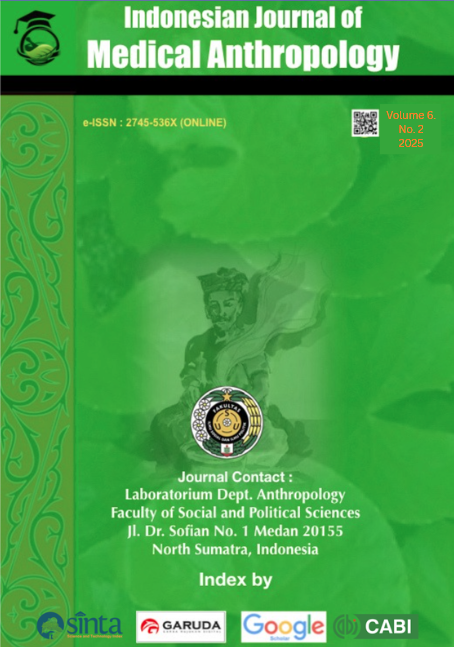Tinuktuk, a Traditional Simalungun Food that Transcends Its Therapeutic Function
DOI:
https://doi.org/10.32734/ijma.v6i2.22909Abstract
This study examines tinuktuk, a traditional Simalungun herbal preparation, not only for its therapeutic uses but also for the social and cultural meanings embedded in its everyday practice. Fieldwork was conducted in two contrasting settings: the rural area where tinuktuk is historically produced and consumed, and an urban context where its presence has spread beyond the Simalungun ethnic group. More than a culinary specialty, tinuktuk represents a distinctive form of local wisdom. The knowledge of its ingredients and preparation is passed orally—predominantly from mothers to daughters—sustaining both its characteristic taste and the values of care and mutual responsibility across generations. This intergenerational transmission strengthens family ties while fostering an awareness of bodily care, from postpartum recovery to maintaining overall physical resilience. Beyond its role in women’s health, tinuktuk operates as a cultural symbol: an expression of maternal affection, a marker of communal solidarity, and a living heritage that interweaves traditional health practices with the Simalungun people’s collective identity.
Downloads
Downloads
Published
How to Cite
Issue
Section
License
Copyright (c) 2025 Indonesian Journal of Medical Anthropology

This work is licensed under a Creative Commons Attribution-ShareAlike 4.0 International License.











